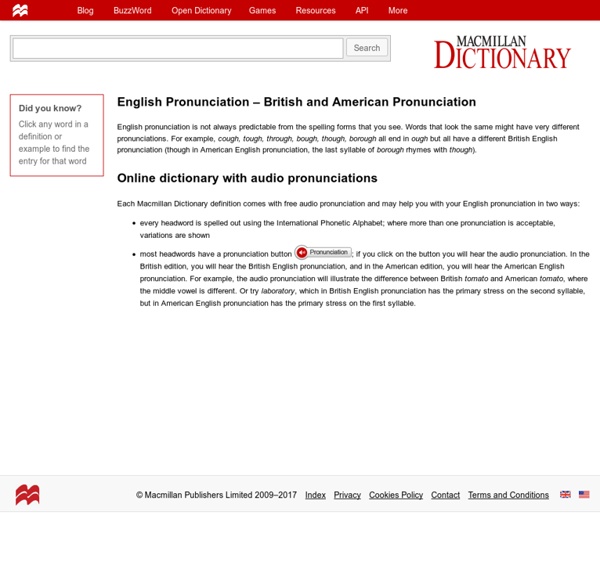Macmillan Online Dictionary with Free Audio Pronunciation
English pronunciation is not always predictable from the spelling forms that you see. Words that look the same might have very different pronunciations. For example, cough, tough, through, bough, though, borough all end in ough but all have a different British English pronunciation (though in American English pronunciation, the last syllable of borough rhymes with though). Each Macmillan Dictionary definition comes with free audio pronunciation and may help you with your English pronunciation in two ways: every headword is spelled out using the International Phonetic Alphabet; where more than one pronunciation is acceptable, variations are shownmost headwords have a pronunciation button ; if you click on the button you will hear the audio pronunciation.
Useful Expressions in English | Commonly Used English Expressions
Check out IH Bristol’s extensive list of over 1000 of the most useful expressions in English, available for free for Beginner/Elementary students to Advanced speakers. Learning English is one of the best ways to improve your life and the prospects of getting a good job. English is used all over the world as the language of education and business and it is becoming normal to expect everybody to be able to speak it. IH Bristol has more than 30 years’ experience of teaching English as a foreign language, of helping students to pass Cambridge Exams, to achieve the right score in IELTS or OET or just to learn to communicate more effectively in the language. Whatever your reasons for learning English, we know the kind of language you need to learn. We want to share our expertise with students of all ages from every corner of the planet. However, not everybody can come to Bristol to learn in person. How to use the Useful Expressions 1. The more you use them, the more you will improve!
Exams - British Council - LearnEnglish Professionals
This area provides practice for the four parts of FCE Paper 4, the listening paper. Each section below provides practice for the skills needed to answer the type of questions asked in each part. Each section should take approximately 45 minutes. Part 1 What are they talking about? In this section you hear people talking in different situations and answer multiple choice questions based on the listening extracts. Part 2a Avoiding accidents In this section you practise taking notes. Part 2b Taking notes In this section, you practise listening and taking notes. Part 3 The Internet, students and fathers Here you listen to people having a conversation and practise identifying who is speaking, as well as the meaning of what they are saying. Part 4 Keeping fit Here you listen to people having a conversation and practise identifying who is speaking, as well as the meaning of what they are saying.
FCE Speaking: Practice tests and tips for students preparing for the First Certificate Speaking test.
If you've signed up for the First Certificate in English exam and need help with the Speaking test, then this page is here to help. You'll find below an overview of the oral exam plus tips to help you do your best on the day of the FCE test. FCE Speaking Test: Key Facts Duration: Approximately 14 minutes. Participants: Candidates interviewed in pairs. FCE Speaking Test: Part 1 (Interview) Tests ability to: use language for social purposes, e.g. making introductions, answering questions about yourself. Part 1 of the FCE Speaking test lasts about 3 minutes. Example Questions Q: Where are you from? Tips! Giving full answers to the examiner's questions will help get the interview off to a good start. 1) Avoid giving short, uncommunicative replies. 2) Avoid short, 'yes', 'no' answers to closed questions. 3) Offer examples to help you explain a statement. FCE Speaking Test: Part 2 (Long Turn) Part 2 of the FCE Speaking test lasts between 4 minutes (6 minutes for groups of three). Example Task Tips!
English to French, Italian, German & Spanish Dictionary - WordReference.com
Related:
Related:



